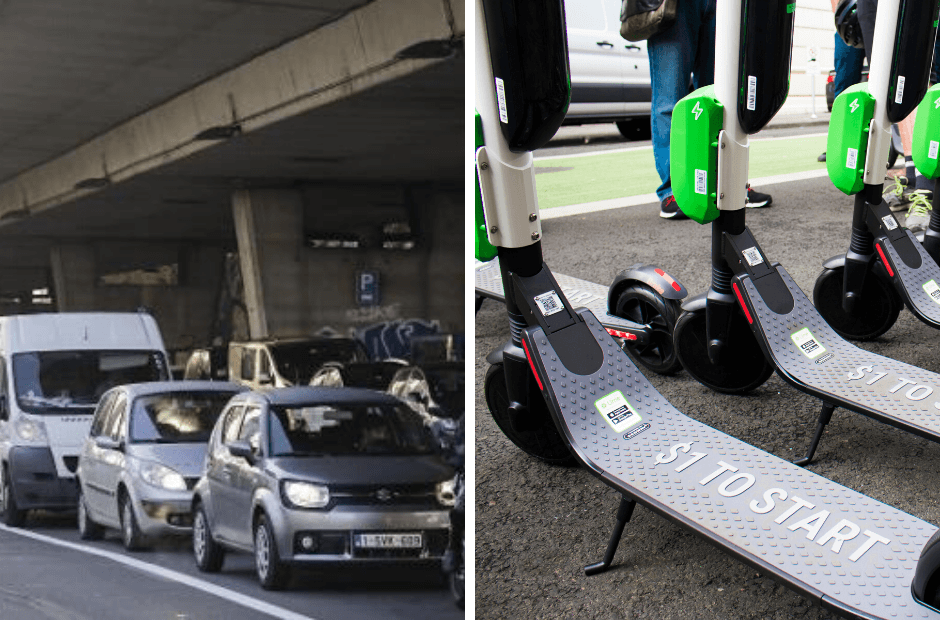A new study led by researchers at the Université Libre de Bruxelles (ULB) has claimed that shared electric scooters in Brussels pollute more than the modes of transport they aim to replace due to their limited lifespan.
According to the results, shared by Belga News Agency, a shared electric scooter in Brussels generates 131 grams of CO2 equivalent per kilometre. Around fourth-fifths of the emissions are the result of the production phase in China, according to the study. In Belgium, the emissions are the result of placing and collecting the scooters and charging them.
An industry expert, however, has argued against the specific application of the findings.
"The study assumes a standard energy consumption during the production even though we are fully carbon neutral from the production to the recycling," explained Romain Dekeyser, Senior Operations Manager Benelux for Lime. "As well as no end-of-life treatments when we are working with partners and recycling 97% of the broken parts," he added.
According to 2019 figures, Lime has the most scooters in Brussels, with their dominating presence cited as one of the many reasons for competitors pulling out of the market in August.
More polluting
According to the study the modes of transport that the shared electric scooter replaces - public transport and the car (private, shared, taxi and Uber) - contribute emissions of 110 g of CO2 equivalent per km, meaning that the scooter pollutes more.
In order to be less polluting than other means of transport, the scooter would have to be used for 9.5 months on average, 2 months more than the current 7.5 months lifespan, the report adds.
This lifespan, however, is a world average for the industry, explained Dekeyser, adding that in Brussels, Lime scooters have a longer lifetime thanks to low vandalism rates. "In terms of hardware, our new scooters have a lifetime of more than 18 months," he added.
The main challenge faced by Lime is not vandalism, or scooter quality, but the poor quality of infrastructure in Brussels, Dekeyser explained.
"The lifetime of our scooters could easily be much longer with more bicycle lanes and better roads," he added. The need to ensure better infrastructure - alongside a need for greater maintenance and less vandalism - was also suggested by VUB researcher Hélie Moreau.
Jules Johnston
The Brussels Times

